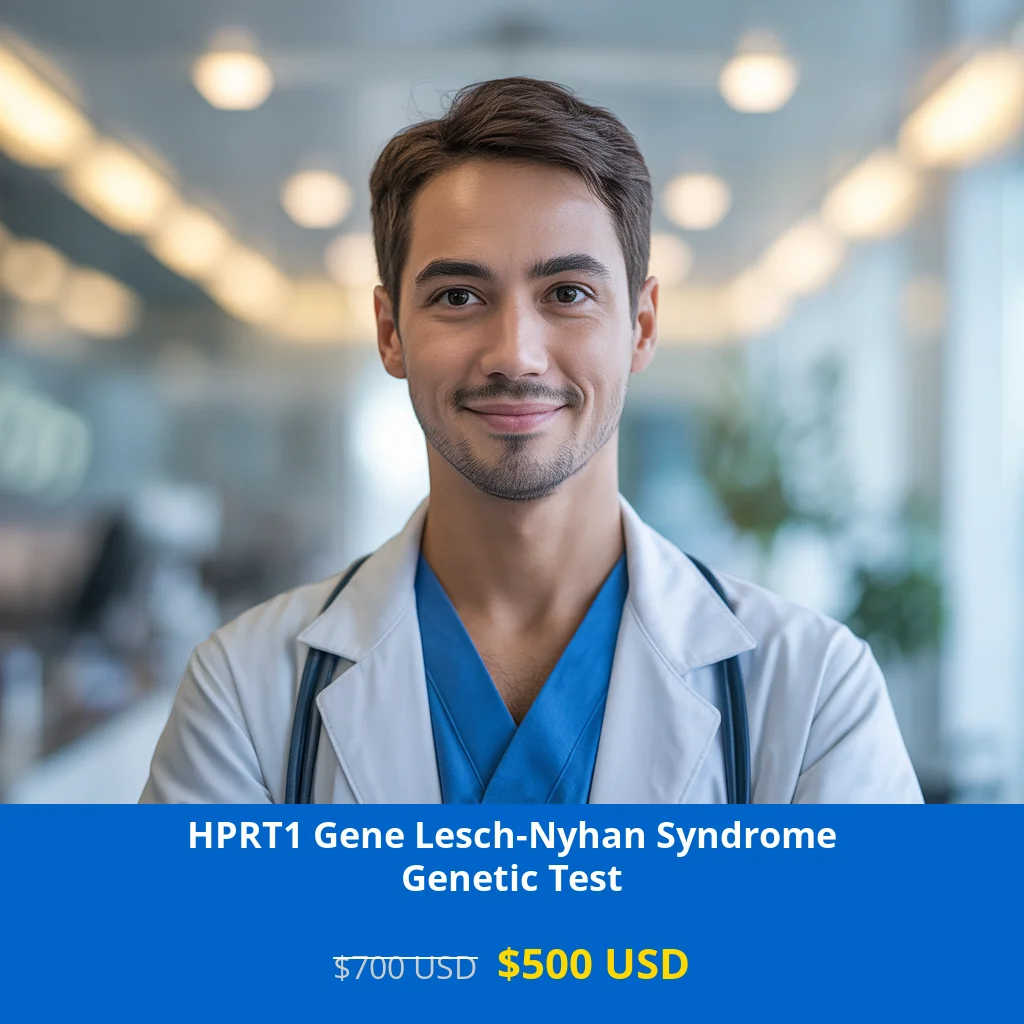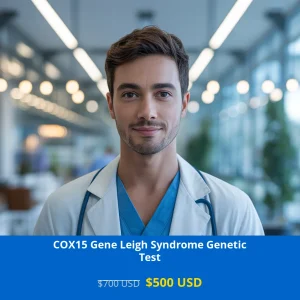HPRT1 Gene Lesch-Nyhan Syndrome NGS Genetic DNA Test
Comprehensive Introduction to HPRT1 Gene Testing
The HPRT1 Gene Lesch-Nyhan Syndrome NGS Genetic DNA Test represents a breakthrough in neurological genetic diagnostics, offering precise detection capabilities for one of the most challenging inherited neurological conditions. This advanced testing methodology provides crucial insights for families and healthcare providers dealing with complex neurological symptoms that may indicate Lesch-Nyhan syndrome.
What Does This Test Measure and Detect?
This sophisticated genetic screening specifically targets the HPRT1 gene located on the X chromosome, which plays a critical role in purine metabolism. The test utilizes Next-Generation Sequencing technology to identify:
- Point mutations in the HPRT1 gene coding regions
- Small insertions and deletions affecting gene function
- Missense, nonsense, and splice-site mutations
- Complete or partial gene deletions
- Complex rearrangements impacting enzyme production
Who Should Consider This Genetic Test?
This diagnostic evaluation is particularly recommended for individuals displaying:
- Unexplained neurological deterioration in infancy or early childhood
- Self-injurious behaviors including biting, head-banging, or scratching
- Developmental regression or delayed motor milestones
- Abnormal muscle tone and movement disorders
- Family history of X-linked neurological conditions
- Uric acid abnormalities without clear explanation
- Behavioral abnormalities combined with motor dysfunction
Significant Benefits of HPRT1 Genetic Testing
Undergoing this comprehensive genetic assessment provides multiple advantages:
- Early Intervention Opportunities: Enables timely implementation of management strategies
- Accurate Diagnosis: Provides definitive answers for complex neurological presentations
- Family Planning Guidance: Offers crucial information for genetic counseling and reproductive decisions
- Personalized Treatment Approaches: Facilitates targeted therapeutic interventions
- Prognostic Information: Helps families understand disease progression and expectations
- Research Contribution: Advances scientific understanding of rare neurological disorders
Understanding Your Test Results
Our comprehensive reporting system provides clear interpretation of your genetic findings:
- Positive Result: Indicates the presence of HPRT1 gene mutation, confirming Lesch-Nyhan syndrome diagnosis
- Negative Result: Suggests absence of detectable mutations in the HPRT1 gene
- Variant of Uncertain Significance: Identifies genetic changes requiring further clinical correlation
- Carrier Status: For female relatives, determines risk of passing the condition to offspring
All results are accompanied by detailed explanations and recommendations for next steps, including referrals to neurological specialists and genetic counselors.
Test Pricing and Availability
| Test Description | Price (USD) |
|---|---|
| HPRT1 Gene Lesch-Nyhan Syndrome NGS Genetic DNA Test – Discount Price | $500 |
| HPRT1 Gene Lesch-Nyhan Syndrome NGS Genetic DNA Test – Regular Price | $700 |
Nationwide Testing Accessibility
GGC DNA maintains comprehensive testing facilities across the United States, with specialized neurological genetics departments in major metropolitan areas including New York, Los Angeles, Chicago, Houston, Phoenix, Philadelphia, San Antonio, San Diego, Dallas, and San Jose. Our network ensures convenient access to advanced genetic testing regardless of your location.
Take Action for Neurological Health
Don’t let uncertainty about neurological symptoms delay crucial diagnosis. Our expert team of genetic counselors and neurological specialists are ready to assist you through every step of the testing process. Early detection through HPRT1 gene testing can significantly impact management strategies and quality of life outcomes.
Call or WhatsApp our genetic counseling team today at +1(267) 388-9828 to schedule your comprehensive neurological genetic assessment. Take the first step toward clarity and personalized care for neurological health concerns.







